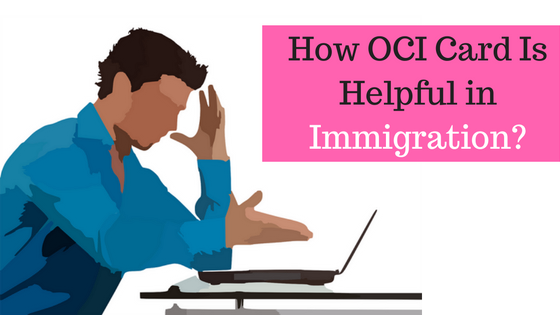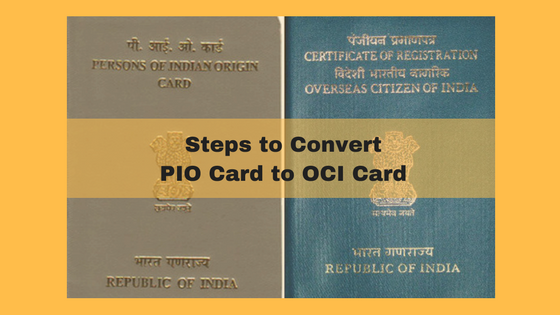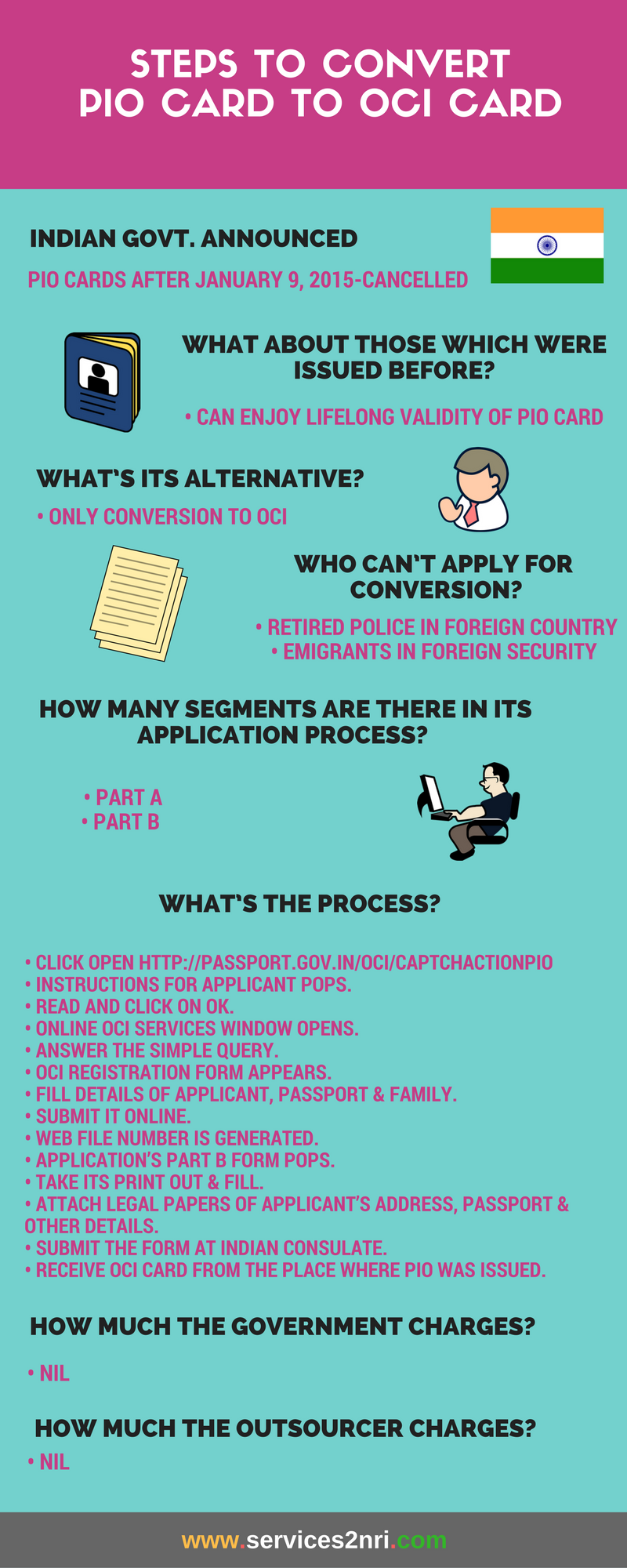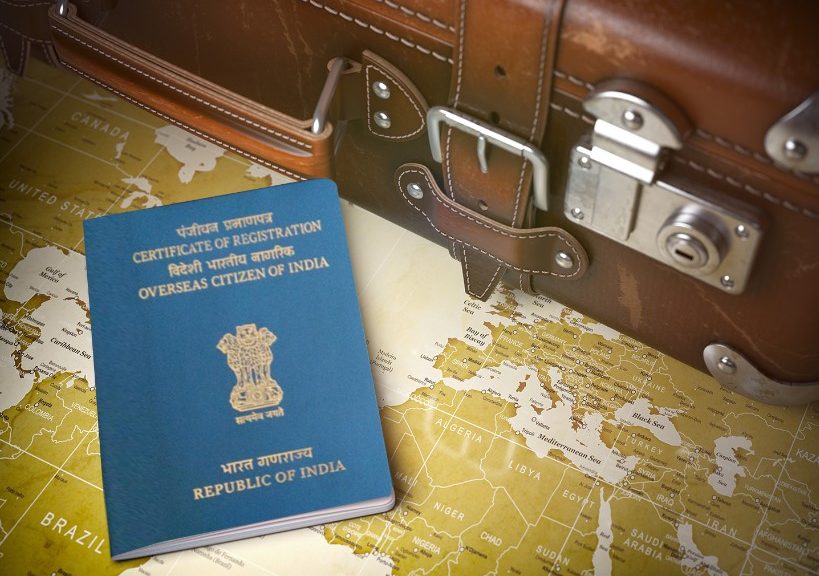
How OCI Card Is Helpful in Immigration?
OCI Card
Immigration is a complex process. A lot of hassles barricade an individual while shifting. Like other countries, Indian government has empowered foreigners, Person of Indian Origin and non-residents’ diaspora with hurdle-free traveling through OCI (Overseas Citizen of India) card.
However, foreigners are eligible to get this card but there are certain exceptions. For example, the citizens of Bangladesh, Pakistan or any such nation that the Central Government declares ‘ineligible’ shall be impermissible.
Let’s take a look who is applicable for owning it indeed.
Who can have it?
It is a must to notice what the Section 7A of the Citizen Act states. It consists of the vital information that describes who is eligible for obtaining this card.
The foreigners who can register must be:
- Indian native at or onwards the time when its constitution (in 1950) was written.
- Eligible for procuring citizenship of India on 26th January 1950.
- Of the territory that was acquired by India after 1947.
- The minor child/ grandchild/great grandchild of the aforementioned person.
- The minor child whose both or either parent were Indian citizen.
- The spouse of the OCI card holder.
- The child/ grand-child/ great grandchild of the parents who were Indian citizen (as per provision of the Government of India Act (1935).
Inapplicable are those who
Belong to Pakistan, Bangladesh or any other country that shall be specified by the Central Government.
How one can get an OCI?
The request for its issuance is now processed digitally. The government has sped up its processing by introduced its registration from its formal website. Sometimes, confusion confines the applicants. They don’t get the idea of selecting the appropriate application form. So, they must carefully select the Form XIX which is enough for a family consisting of spouses and two minor children.
Its part A and B are filled online. Subsequently, its hard-copy must be submitted to the Indian Mission with the following documents.
- Citizenship certificate
- Proof of self/ grandparents/ great grandparent (property papers/birth certificate/residential proof of 1950 or before)
- Passport
- Copy of domicile certificate
- Birth certificate/residential proofs attested by the first class Magistrate/ District Magistrate.
- Marriage certificate of spouses (of Indian origin)
While submitting all these documents, the authority processes this request only in return of particular amount (which is INR 15,000 currently). However, this sum can be changed as per direction of the authority.
It’s advantageous!
It would be a happy moment when one travels across the country and no hassle obstructs. This exactly is the benefit which this card awards to its bearer. But this is not the only one. There are more advantages that can relief mavericks. Catch a few below:
- Multi-purpose visa for life long.
- No need to verify with police even though the stay exceed 180 days limit.
- Parity with NRIs in respect to financial, economic, and educational benefits.
- Parity with NRIs when it comes to adopting an Indian child.
- Parity with NRIs in respect to tariffs for domestic flights.
- Parity with NRIs when it comes to paying entry-fee for touring wild-life sanctuaries and national parks in India.
- Parity with NRIs in respect to paying entry fee for visiting national monuments, heritage sites and museums in India.
- Parity with NRIs when it comes to take admission in All India Pre-Medical Test or any such test.
- Permitted to show an attested/notarized affidavit that specifies address (& email address) of the bearer in place of residential proof.
It is noteworthy that this card does not facilitate acquisition of agricultural or plantation land/property. Therefore, such persons cannot buy any farmhouse or farm/field in their own name.
Comparison between PIO and OCI card facilities
Apart from NRI status, there is a third facility also called PIO card. It expands as Person of Indian Origin. However, the Modi government has ceased accepting fresh application for seeking this card since 9th January 2015. Yet, its old bearers are permitted to enjoy its all benefits.
In terms of benefits, both, cards are more or less equal. But still certain differences make them poles part. These differences reflect in:

Since the formerly mentioned card is no more issued, its holders are recommended to switch it with latter card. They can enquire for how PIO card holders can apply for OCI card at the nearest FRRO office. Although it is not mandatory yet the confusion spread when this bulletin surfaced. Today, it’s clear that the already registered PIOs card-holders can resume its use for traveling. They must carry their old as well as new passport along.
This news had surely burdened lots of worries on the prospective travelers. Now, the competent authority (FRRO) provides a registration booklet to PIO card-holders. They can get it attested on every visit from the consular office/passport authority. Forgetting passport can reject their entry. So, they must keep it along.
The conversion slaps an extra cost worth INR 8,000. The applicant has to visit the bank for withdrawing a Demand draft of the same amount.




 this is link
this is link